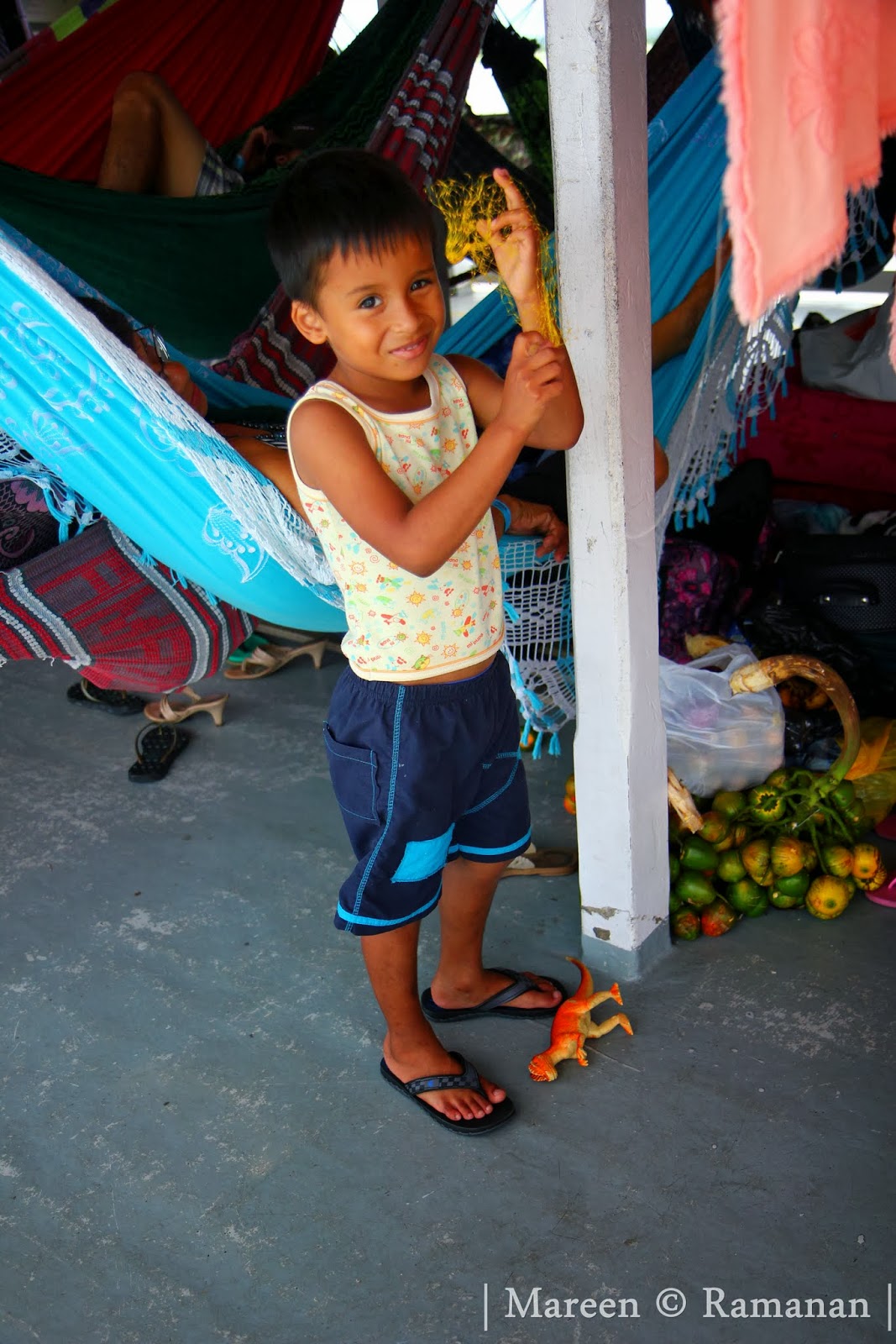The question was how do we get from
Colombia to Brazil? Brazil is a big country, and we needed to be in
Rio for the end of February. At this time, we were in Bogota and
nowhere near Rio. We could fly but considering our employment
situation and the Galapagos being very expensive, flying wasn't in
the budget. As for crossing overland into Brazil and taking buses
like we have been doing all along, that wasn't an option either. Why?
The Amazon. So the choice was made easy for us. We would have to go
to Leticia, a small city in the Colombian jungle, cross into Brazil
from there, and take a riverboat to Manaus. This would be a lot
cheaper than flying, and a hell of a lot more interesting!
Our flight landed in Leticia on
Saturday evening, and it was already dark by the time we got to
Hostel Mahatu. Leticia is a small, ordinary city that is important
because of its location. It's becoming a popular starting point for
jungle tours to the Amazon. It's also a port city at the Tres
Fronteras, a landmark point where Colombia, Brazil and Peru meet.
Many travellers going to Brazil or Peru pass through Leticia to take
riverboats.
A boat to Manaus left the day we
arrived in Leticia, and the next one was on Wednesday. This meant we
had four days to relax and sort out all this boat business. Our
hostel, Hostel Mahatu, was an awesome place to stay! It felt like a
rustic resort, with a really chilled staff and plenty of interesting
guests. The most coveted spot- the hammocks, were the best place to
take a nap when the afternoon sun was blazing hot.
Now for the business of figuring out
how to take the boat. That was harder than we expected it to be. To
buy tickets for the boat you have to cross over into Brazil, and by
that I mean you just keep walking down the main street. Leticia and
Tabatinga are really like one city, one side is Colombian and the
other, Brazilian. You pass by some soldiers, some road pylons and
then all of a sudden the language and currency changes. If you're not
really paying attention, you really don't even notice that you have
crossed the border at all. It's an open border with people coming in
and out freely.
It took us forever to find the port.
None of the streets had signs, it was crazy hot, there was a colossal
downpour of rain and being told directions in Portuguese didn't
really help. Then came the issue of finding a bank that would take
our debit or credit card. So when we finally got the money and went
back to pay for the tickets, the girl at the desk had gone for lunch!
It took forever but we finally got the tickets. We would be taking a
three day boat on the Solimoes River to Manaus. The next day, we
went back to the airport to stamp out of Colombia and then returned to
Tabatinga to get stamped into Brazil. We weren't leaving till the following day, but we had to be at the port early in the morning so all
the immigration matters had to be done the day before. Sorting all
this out took us a few days, and walking back and forth between
Colombia and Brazil was good exercise.
The Dona Elbia Cabral, our boat, was mostly filled with local Brazilians and a few gringos
such as ourselves. Everyone was tightly squeezed together across both
decks in their hammocks, and spent most of their time sleeping,
reading or on their phones. The boat is a humble one. There were
about 8 cabins, and we had one of them, which we paid double the
price for. But to be honest, it was nicer to be outside, feeling the
cool breeze, rather than being cooped up in your room. The only plus
side to having a cabin-your own toilet and AC! We really only got the
cabin because of all the electronics we had with us. With so many
people around and nowhere to lock up your things, we didn't want to
take the chance.
Life on the river was incredibly
relaxing. When the bell rings, it's meal time. The meal quarters are
small, seating only 12 people, so you line up to eat. And you eat in
silence, devouring your food as quickly as possible because you feel
guilty about the line-up outside watching you eat, patiently waiting
for their turn. It was usually quiet except for the times when the
boat made stops at several small villages to pick up and drop off
passengers. The nightly entertainment-a football game and bingo the
first night but a Brazilian soap opera called Amor a Vida, basically
took over the next two nights. Being on the Dona Elbia Cabral felt a
little like being in prison but with friendlier people around you :-)
So between the reading, napping, eating, and repeating this cycle,
the days flew by.



















No comments:
Post a Comment